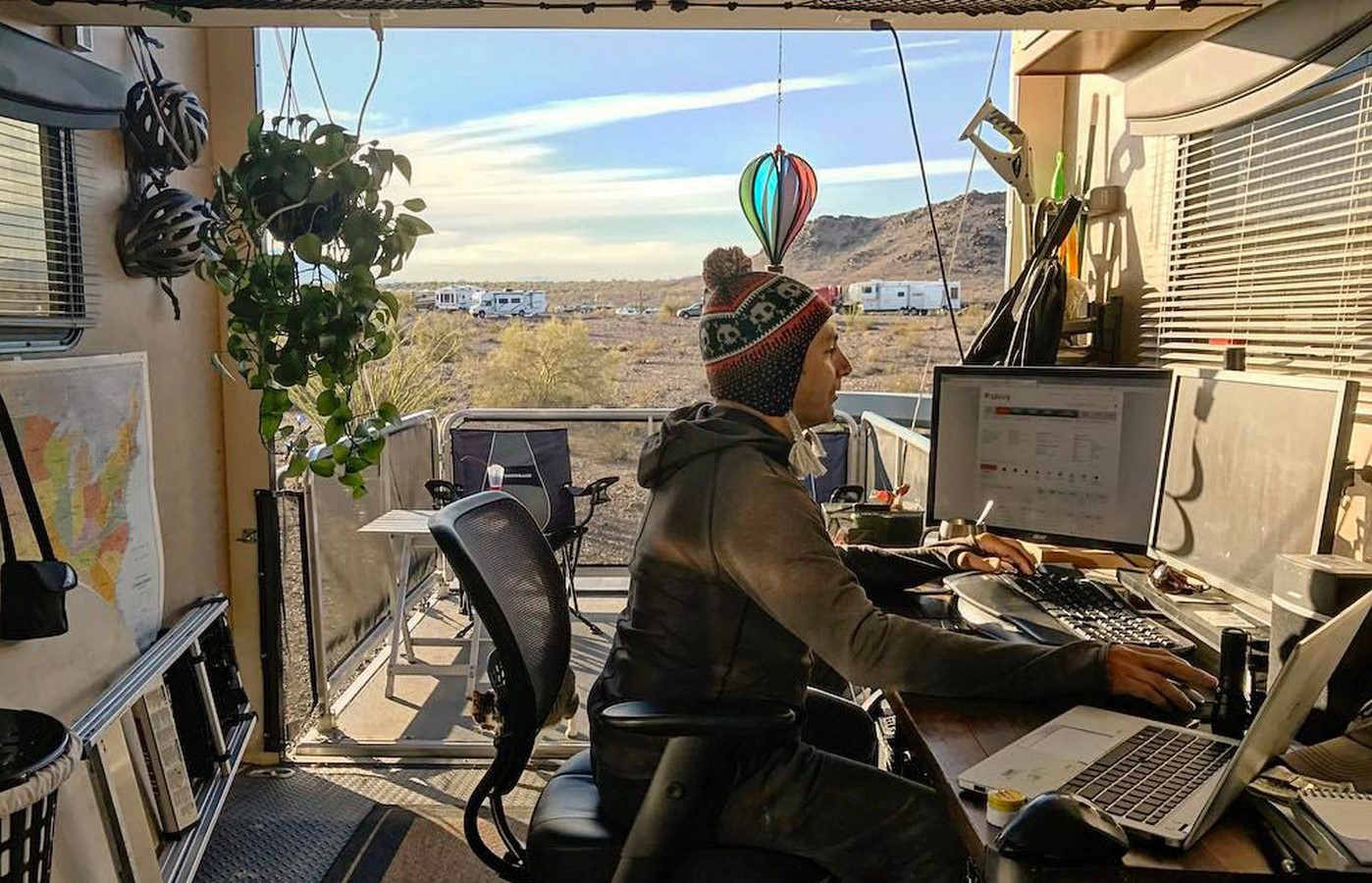‘Digital nomad’, what is it?
Digital nomads are independent people who have subscribed to technology and are making the most of it by being mobile workers who work while traveling and experiencing the best life from anywhere and everywhere around the globe. Today, there are over 5 million people who describe themselves as digital nomads, and the number keeps increasing with every research project as more people aspire to be able to do this.

The transition of spaces
After the COVID-19 pandemic, many things have changed for people, especially people’s approaches to how they work. Not long before, we all had this idea of work only being associated with work and home being associated with our everyday normal routine apart from work. But today, the boundaries between these spaces have blurred. Work does not only equal office. People can work from anywhere worldwide while traveling to some amazing destinations, whether for a trip or an event.
It is amazing how technology is reaching different heights with time, and the world is becoming an interesting place to live in. All you need is a laptop and a good Wi-Fi network connection to connect with people or offices online and you are good to go. Now you can work with a beach view, a mountain view, or even while commuting. This has also motivated people to seek a job that allows them to do this instead of a 9-to-6 desk job, which has also resulted in people changing their career paths.
The whole dynamics of work, home, and travel are changing. The way humans inhabit these spaces is different from what it used to be. Digital nomads are influential and are impacting the environment. These travel patterns are increasing rental properties, overall environmental sustainability, and gentrification. So the question arises: how responsible are digital nomads?

The travel industry and redefining work culture
Today, more than ever, people are inclined to join the digital nomad lifestyle because of its convenience to work from anywhere and everywhere, meet new people, experience new things, gain knowledge, and earn money. The independence that this lifestyle offers is a dream for many. Traveling could be for many reasons; it could be to explore new places, meet new people, or pursue higher education; to know different cultures; to do a side hustle job for whatever that place is famous for; or to learn new skills.
To cut down on the cost of rental properties, people also travel by caravan, which becomes their home, office, and vehicle all at once. A caravan is an affordable option and a one-time investment. People are spending money on experiences rather than buying expensive houses.


Remote workers and digital nomads
Now the question is: are remote workers and digital nomads the same? For which the answer is ‘No’!
If we break the word ‘digital nomad’, ‘digital’ means technologically advanced, and ‘nomad’ refers to a person who wanders all the time. Digital nomadism is a lifestyle choice, and not every remote worker desires to travel while they work. So, digital nomads can be remote workers, but remote workers are not necessarily digital nomads.
Forming communities
Exploring the world is fun but challenging. On this exciting journey of travel, people are exposed to a diverse group of people with different professional and cultural backgrounds. Their same interest in any random topic makes them intrigued and brings them closer. This forms a community of these nomads worldwide. which is very interesting because if it were not for travel, it would be difficult for people from different backgrounds to ever meet and collaborate.
Reference list:
- Kozak, M. (2023) Understanding the world of the Digital nomad, City Destinations Alliance. Available at: https://citydestinationsalliance.eu/understanding-the-world-of-the-digital-nomad/ (Accessed: 16 October 2023).
- Msherpa (2022) How digital nomads are shaping the travel industry?, Tourism Marketing and Management. Available at: https://www.tourismmarketingandmanagement.com/2022/12/20/how-digital-nomads-are-shaping-the-travel-industry/ (Accessed: 16 October 2023).
- Zerva, K., Huete, R. and Segovia-Pérez, M. (1970) Digital Nomad tourism: The experience of living at the destination, SpringerLink. Available at: https://link.springer.com/chapter/10.1007/978-3-031-19656-0_2 (Accessed: 16 October 2023).















